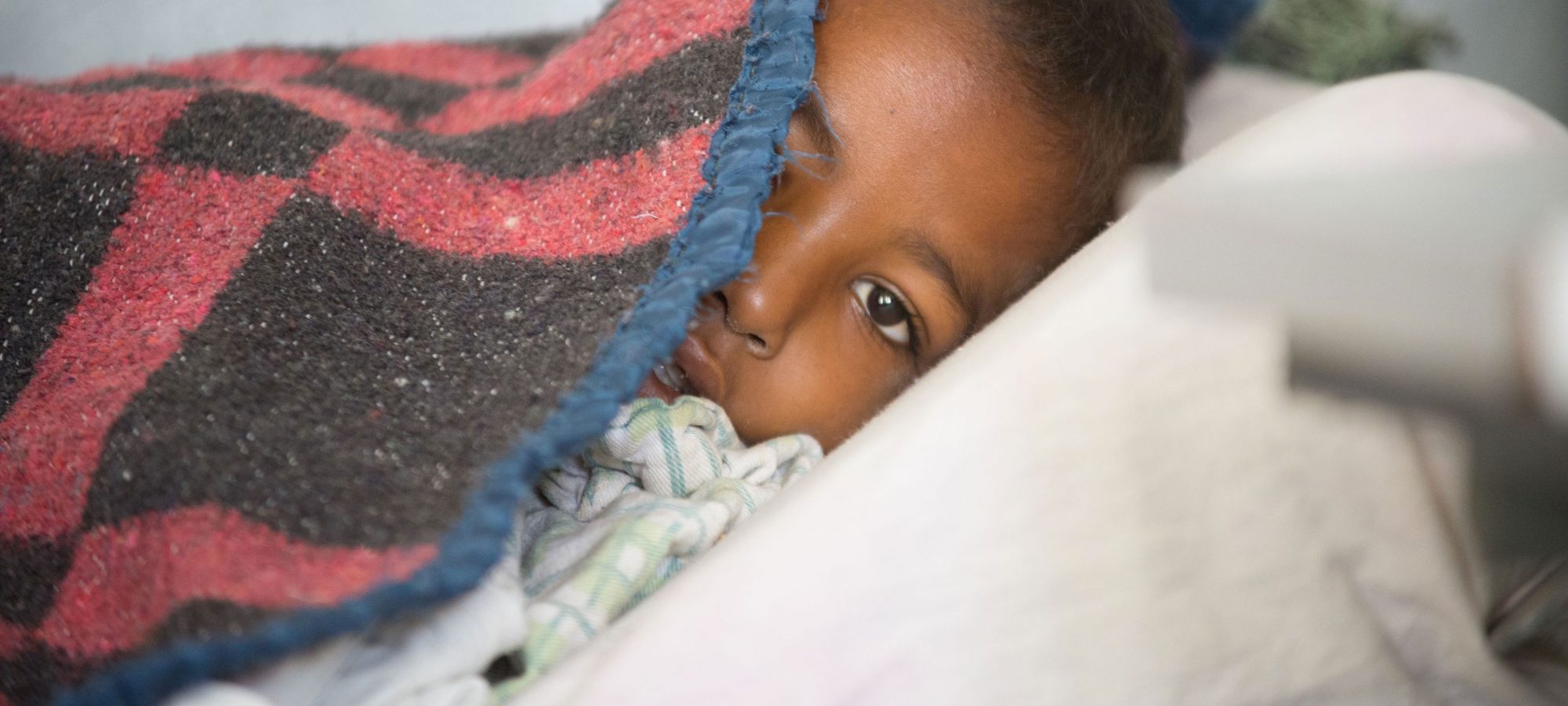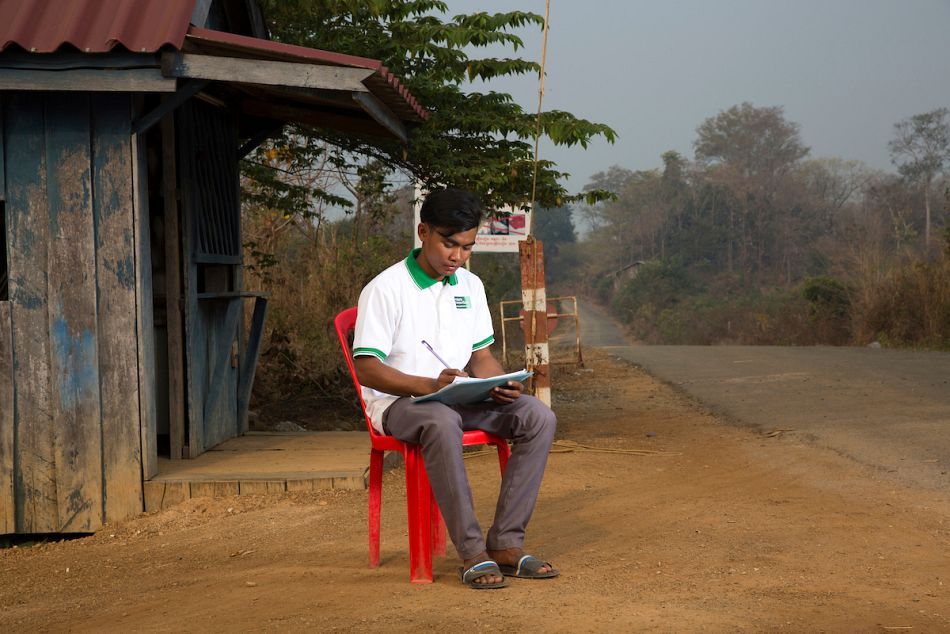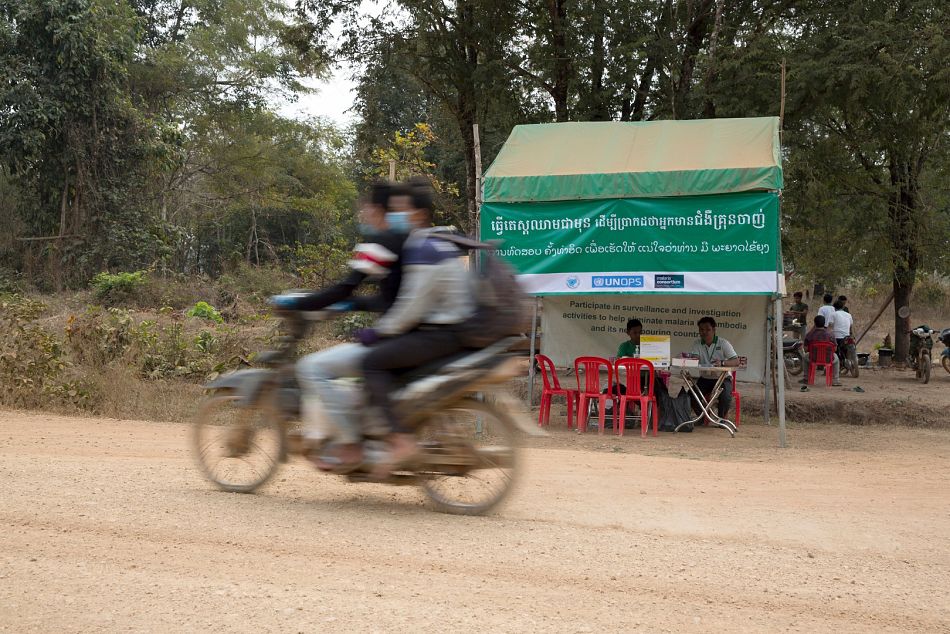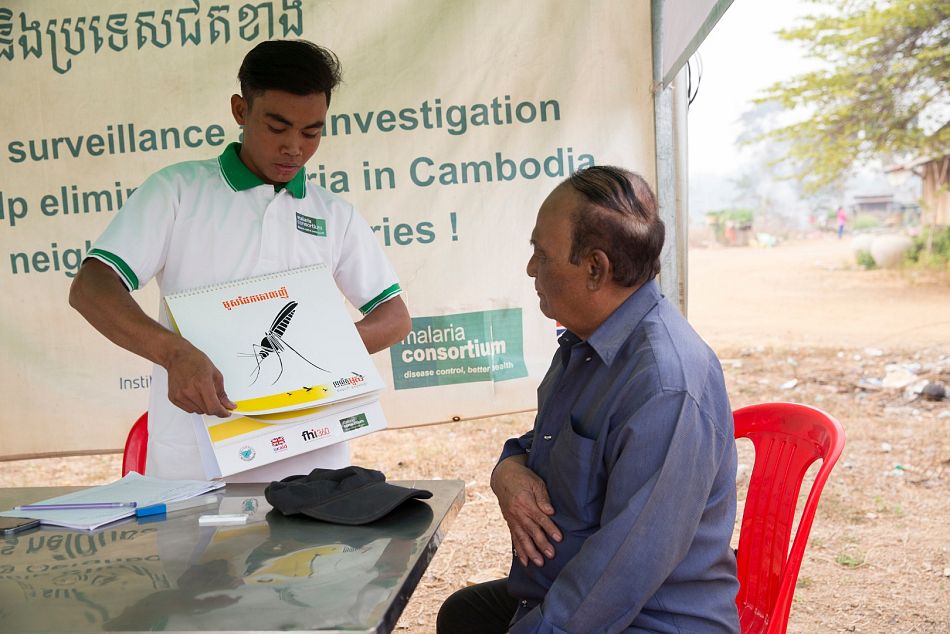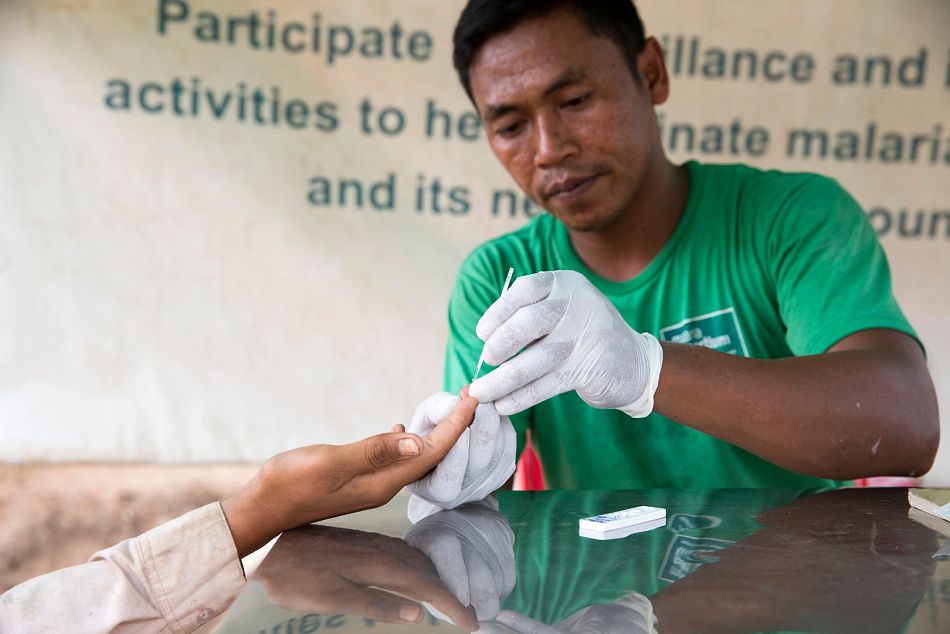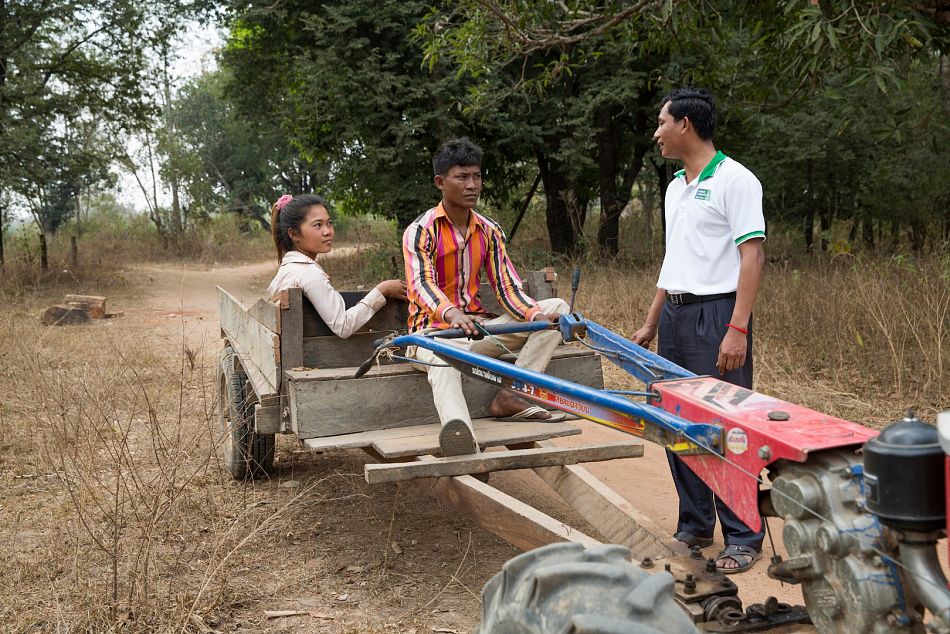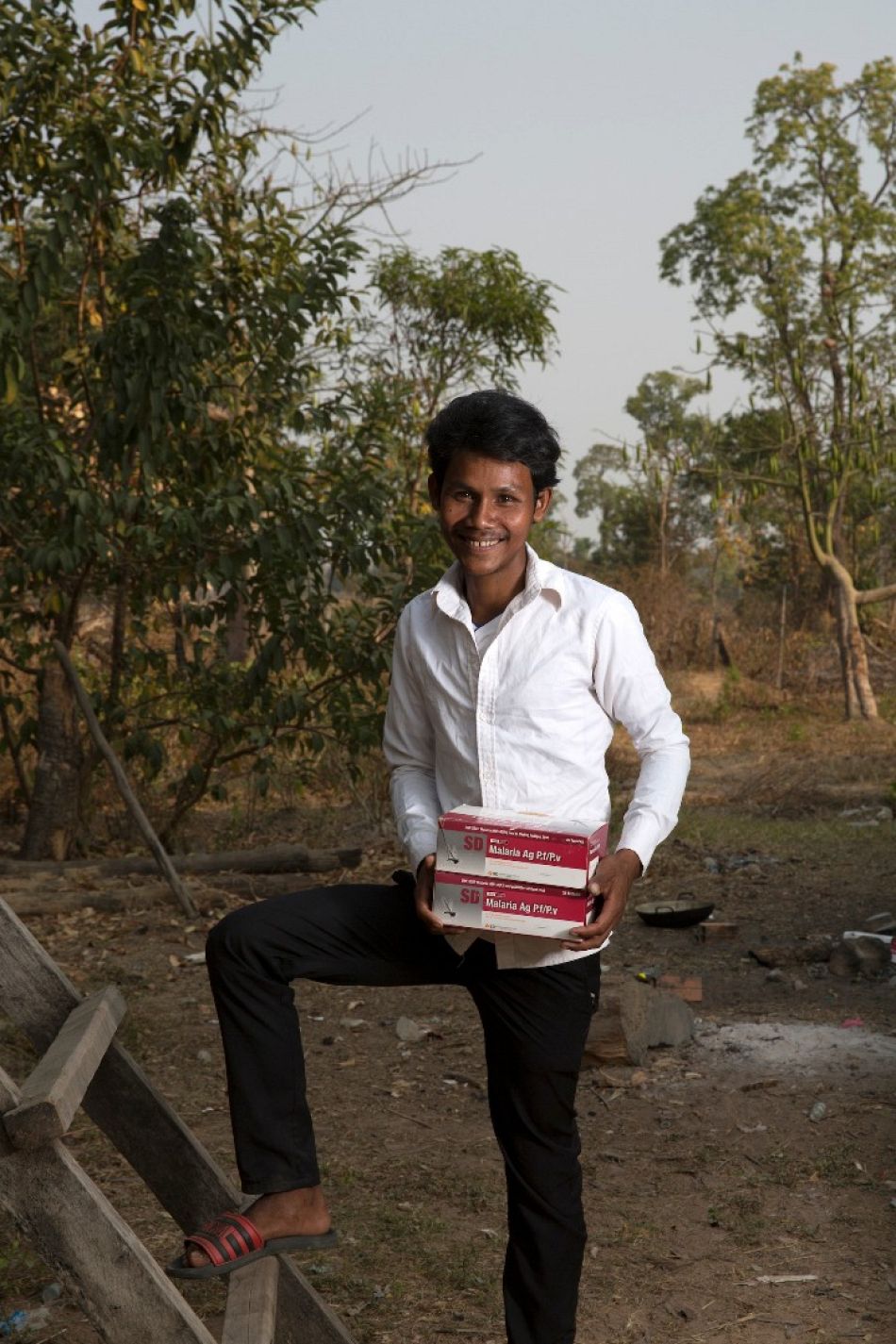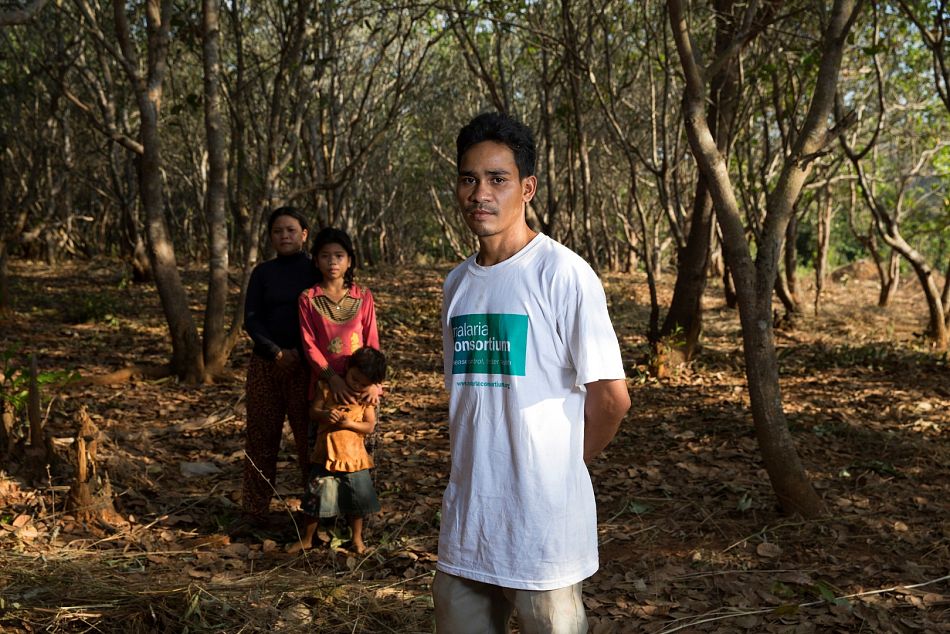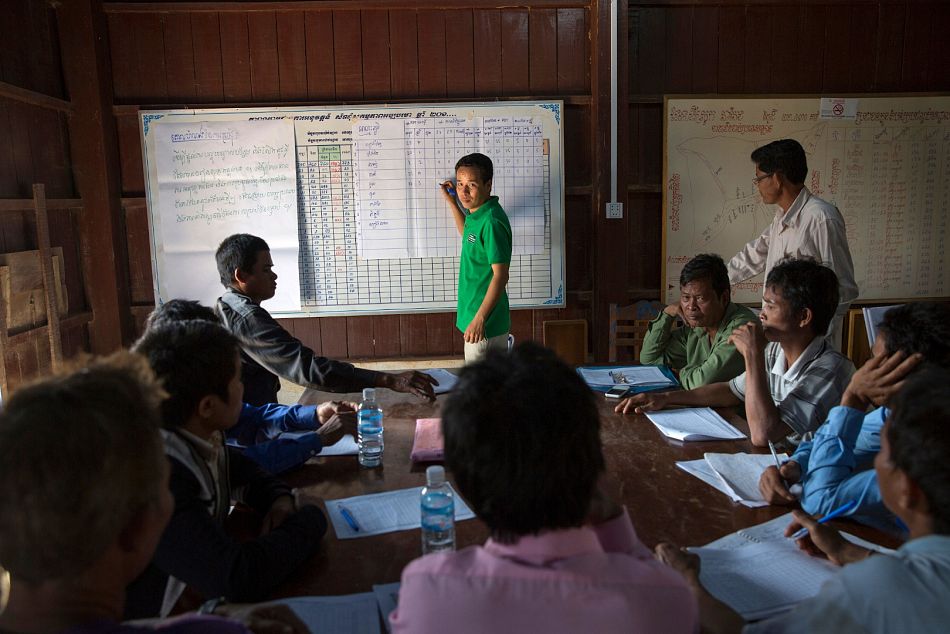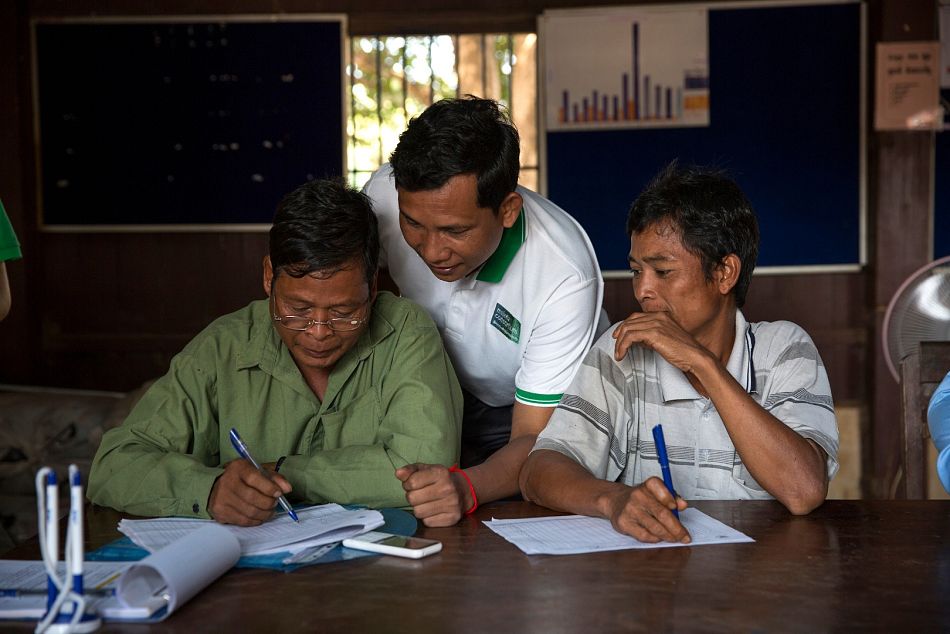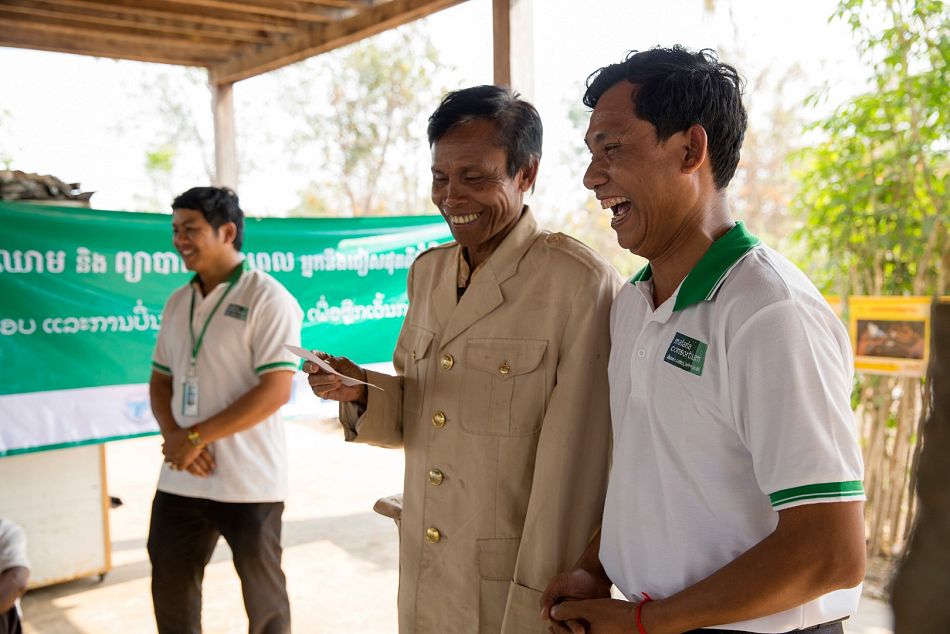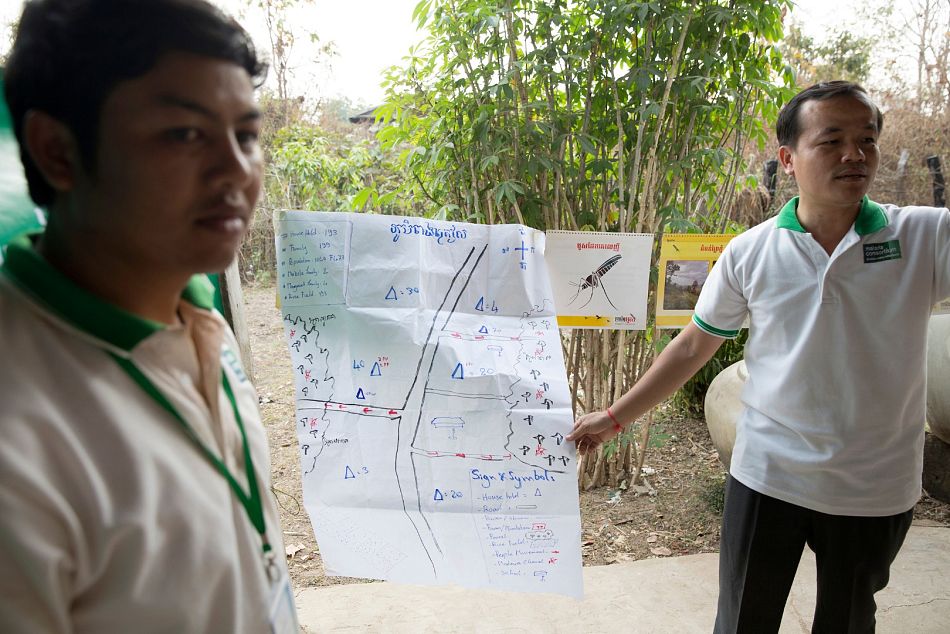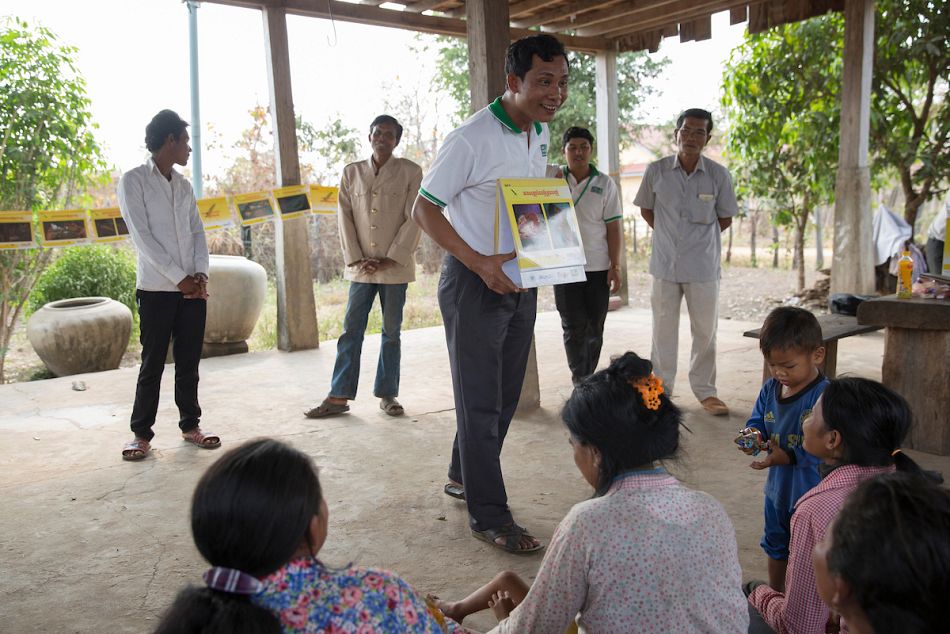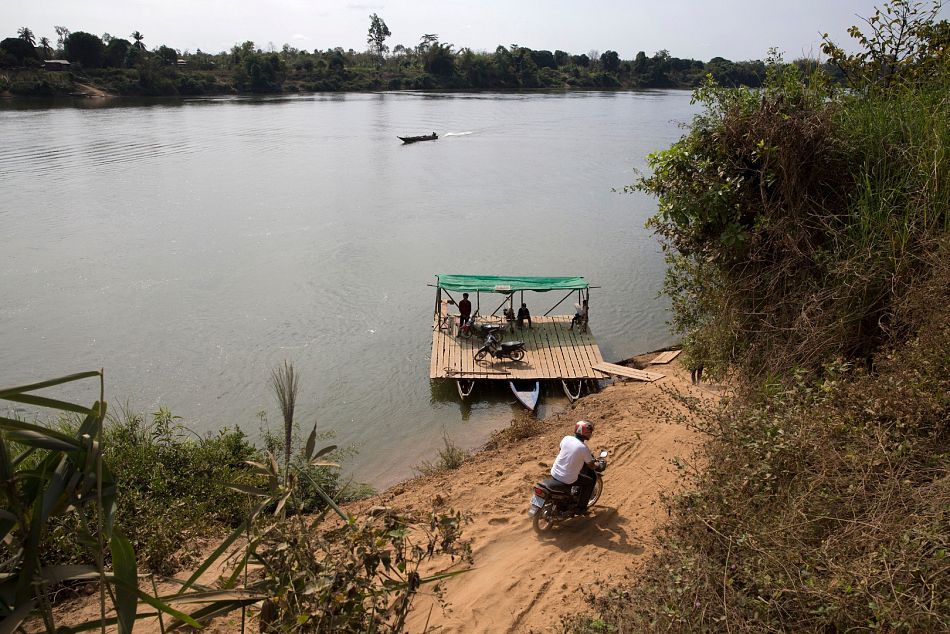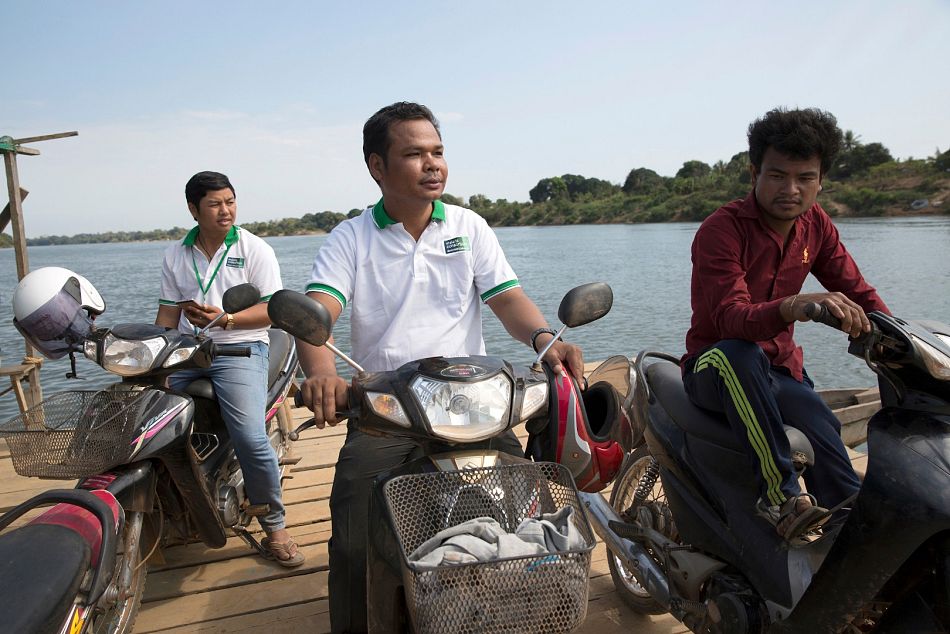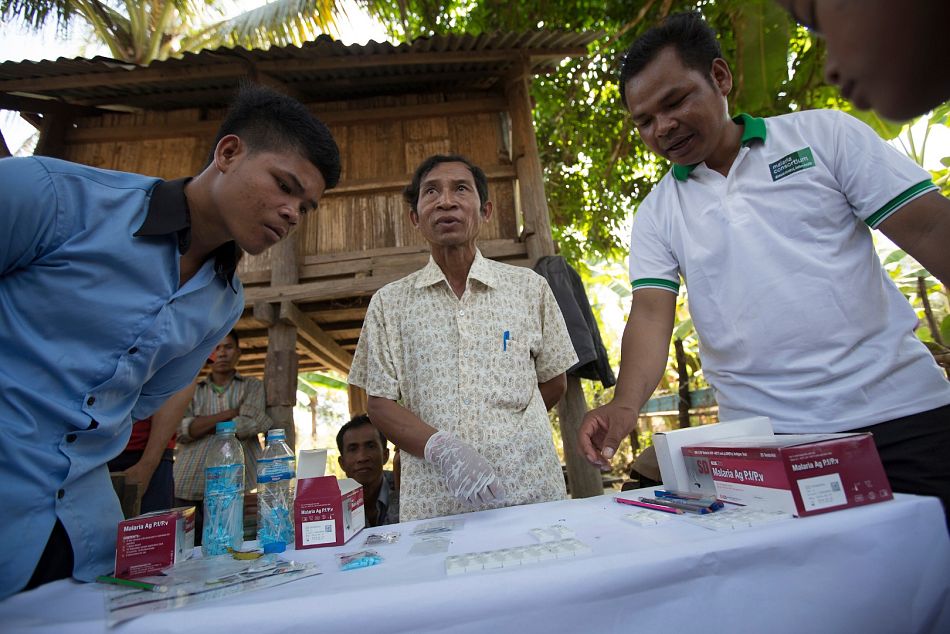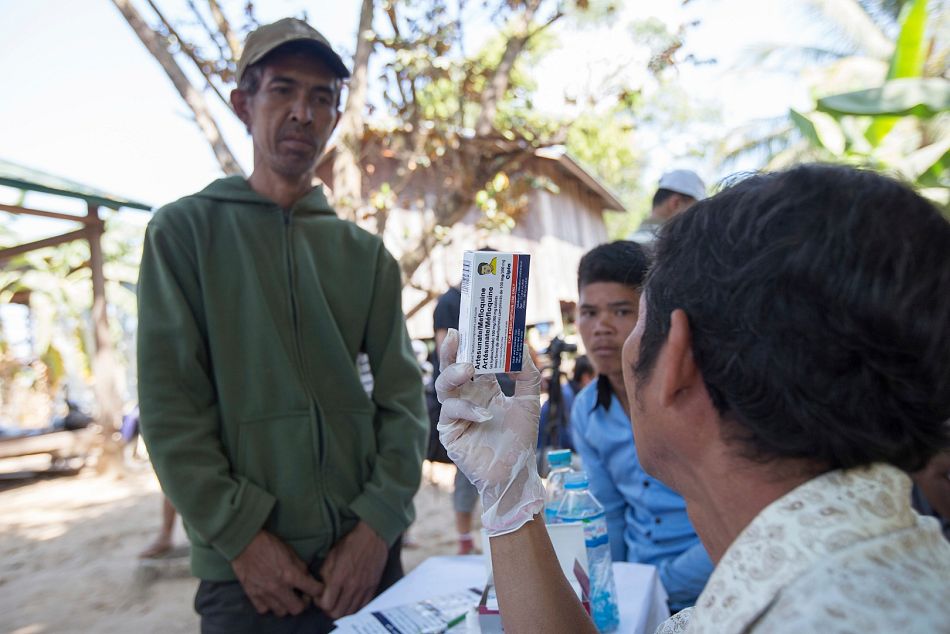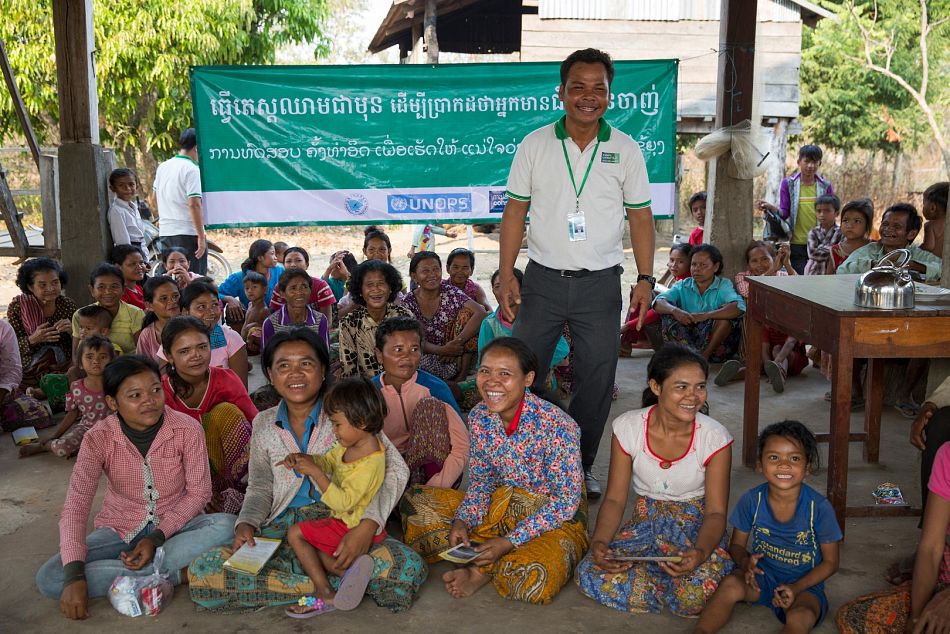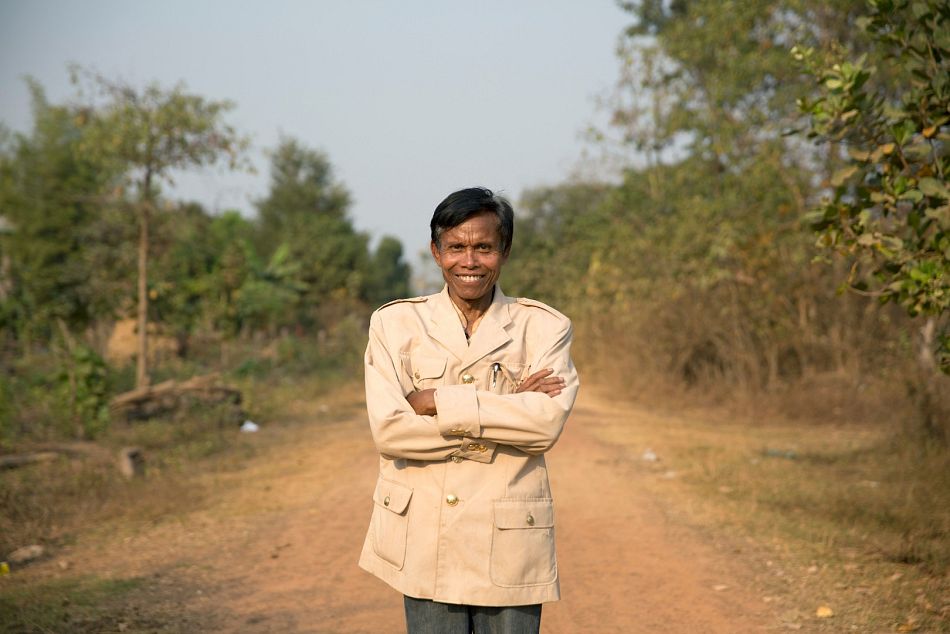In Cambodia, malaria infection is highest in border regions and among mobile and migrant populations who often live in remote parts of the country, work in forests or travel through endemic areas. The remoteness and mobility of these communities often means they have poor or infrequent access to health care which can lead to malaria cases going undetected and untreated. In other situations, people seeking treatment do so at unregistered private providers, leading to unreported malaria cases and unknown and possibly unsuitable case management practices.
Malaria Consortium’s Trans-border Malaria Programme, in partnership with the Raks Thai Foundation and Population Services Khmer, is strengthening early malaria detection and treatment services and surveillance activities in Thailand and Cambodia.
This programme is being funded by the Global Fund to fight Aids, Tuberculosis and Malaria.
In the northern Cambodia, Malaria Consortium has trained and hired 21 mobile malaria workers to detect hotspots of malaria transmission and to identify people who are at risk of malaria infection.
Mobile malaria workers provide services to mobile and migrant populations and border communities by setting up mobile malaria posts in high traffic areas, such as border points, strategic forest entry points and farming areas
At mobile malaria posts, mobile malaria workers provide health education and free diagnostic tests to passers-by who have been in high risk areas. They can also provide treatment if the test is positive
Mobile malaria worker, Chhoceung Thy, tests a young woman who has crossed the Laos/Cambodia border after travelling in areas of high infection
The flexibility of the programme allows Malaria Consortium to respond to changes in the region which can drive migration, such as seasonal farming, new businesses and new roads. It also allows us to intercept and treat migrant workers in-between the place of infection and areas where other people infected might transmitting the disease
Through the programme, Malaria Consortium provides mentoring and support to village malaria workers, who are community volunteers trained to educate, test and treat people in their communities
Village malaria worker, Thy Sambath, from Tun Village visited the Sreynoeunn family after learning that both children had developed fevers. Both children were diagnosed with malaria but made full recoveries after Thy provided the necessary treatment
Malaria Consortium and health centre staff hold regular meetings to bring village malaria workers and mobile malaria workers together to share data, discuss challenges and to develop monthly work plans
During regular training meetings, data collected by mobile and village malaria workers is reported to Malaria Consortium staff who, in collaboration with health facility and district malaria officers, analyse and use the data to map areas of high transmission
Whenever Malaria Consortium identifies a community as being high risk, village meetings take place led by village malaria workers, health centre staff, village chiefs and Malaria Consortium staff
Village meetings are a valuable opportunity to work with community members and map where infection has been transmitted. During the meetings, communities provide information about local travel patterns and places where malaria infection might have occurred. Field staff use this information to identify the main risks for the village and to decide how to best find and treat other cases
Village meetings provide a valuable platform to educate the community about preventive practices, such as sleeping under a mosquito net and wearing long clothing in high risk areas. Participants are also taught about the symptoms of malaria, why early diagnosis is important and where they can access free diagnostic testing
When positive malaria cases are detected, they are reported to field assistants and investigated. This way Malaria Consortium can identify other people that have been in high risk areas and might be carrying the disease. This often requires our staff travelling to hard to reach areas to meet the needs of people who lack access to health facilities
Malaria Consortium Field Assistant Team Leader, Chea Chin, travels to Teak Team village to conduct a screening for people who have recently been in contact with high risk areas
Village screenings are conducted with health centre staff and village malaria workers and test people who have had contact with identified high risk areas or show symptoms of malaria
Positive cases are treated with anti-malarial drugs
In-depth interviews have shown an increase of knowledge and improved attitudes towards malaria prevention since the programme began. Community members are increasingly aware of the risks associated with in forest areas and know to seek malaria testing if they become ill
“Malaria Consortium has raised awareness and increased knowledge of malaria in our village. The education the staff have provided, together with the mosquito nets given to us by the health centre, have reduced the number of cases in our village” – Pong Kriel Village Chief, Chan Pov
18
1
Photos: Luke Duggleby/Malaria Consortium
